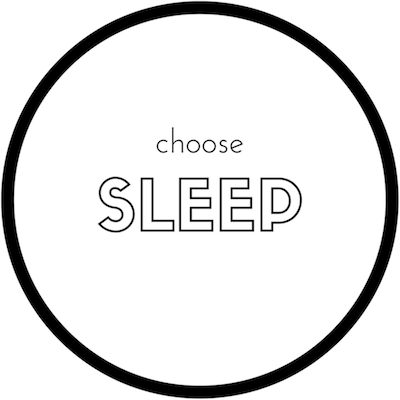Why Sleep?
If you are to prioritise one thing as winter's icy cool sets in (for us in the northern hemisphere anyway) - it's sleep. Our life is making this basic necessity an elusive commodity. We all know that stress compounds the problem too, but what many struggle to deal with is breaking this sleepless habit. So do it now when the nights are longer, for so many reasons, but most importantly because every part of your body needs it.
My latest book Your Middle Years written with Dietitian Paula Mee explains more of the science behind sleep and why women are more likely than men to suffer from sleeping issues - especially as we grow older. But in a nutshell, it's the combination of reduced oestrogen levels and changes in our body’s circadian rhythms, which advance noticeably with age, resulting in an earlier sleep/wake cycle. In other words, we sleep earlier and rise earlier (remember our grandparents rising with the dawn?). The grey matter in the brain that is responsible for deep sleep slowly thins and declines with age too, making this vital sleep stage more difficult to reach and maintain, while the production of growth hormone decreases, with knock-on effects on every body system - our skin, gut, emotional health and more. it's a vicious circle really and although we know that that a few nights of broken sleep won’t kill us, lack of sleep in the long term leaves us exhausted and hugely compromised in both body and mind.
Tips for better sleep
At this stage in our lives we're all old enough to know that being permanently exhausted doesn’t mean we are super busy or super important – it just means we aren’t prioritising! So here's a few suggestions that just might help you keep more in sync with your body and the greater world.
Get some natural sunlight every morning: Sunlight helps regulate and reset our body clocks, so work with your body’s unique rhythms by starting each day with 15–20 minutes of natural morning light.
Exercise: Regular exercise encourages deeper sleep cycles. When to exercise is up to you but studies have shown that people are more likely to stick to a routine if they exercise first thing in the morning. Strenuous exercise is not advised before bed.
Create a routine: We are hardwired to rise at dawn and go to sleep at sunset and our body’s ability to regulate healthy sleep patterns depends on this consistency. The production of melatonin drops off rapidly in the morning light and this sets the pace for the next 24-hour cycle, so using the weekend to make up for lost sleep just disrupts this rhythm. Try to rise at a similar time every morning. If you must catch up on lost sleep during the day, nap for a maximum of 45 minutes.
Power off: Take time to unwind and calm down. Switch off electronic devices and leave them charging in the kitchen, NOT the bedroom. You can catch up on Facebook, Twitter, etc. in the morning – you won’t have missed much!
Food: Cut out stimulants including caffeine and alcohol. Choose some of the following foods every day - tart cherries (or try a supplement like Cherry Night by Viridian), hot milk, magnesium-rich foods including almonds, sesame and pumpkin seeds, bananas, dried fruits, dark chocolate, yogurt.
Do mindfulness meditations: Numerous studies report the benefits of mindfulness in improving sleep quality and quantity. Your Middle Years guides you step-by-step through some very helpful muscle relaxing techniques, guided meditations to help induce sleep. You could also try some of the many sleep apps. Many come with sound scientific support like the guided meditations on Headspace. This said, some experts are cautious about having any form of technology to hand when trying to sleep.
Let go: This is quite powerful as most of us think in terms of ‘going to sleep’ at bedtime. But sleep isn't a place and willing yourself to sleep simply increases anxiety. Sleep is about letting go and should be something that comes automatically. If your brain is still working overtime this wont happen. thats the time to practise some mindfulness/meditation techniques or try jotting down ideas that come to mind in a notepad by your bed, instead of mulling them over hoping they won’t be forgotten. Most importantly, don’t worry - sleep will come.
Apply the quarter-of-an-hour rule: To promote a healthy bed–sleep connection (rather than anxiously tossing and turning follow the quarter-of-an- hour rule recommended by the Sleep and Circadian Neuroscience Institute at Oxford University: if you are not asleep within around 15-20 minutes of going to bed, go to another room, wind down until you are ready to sleep.
Be thankful: I know this sounds a little whacky but believe me by simply thinking of a few things from your day for which you can be thankful (regardless of how hard life is for you) it will help calm you and focus your mind on the positive.



